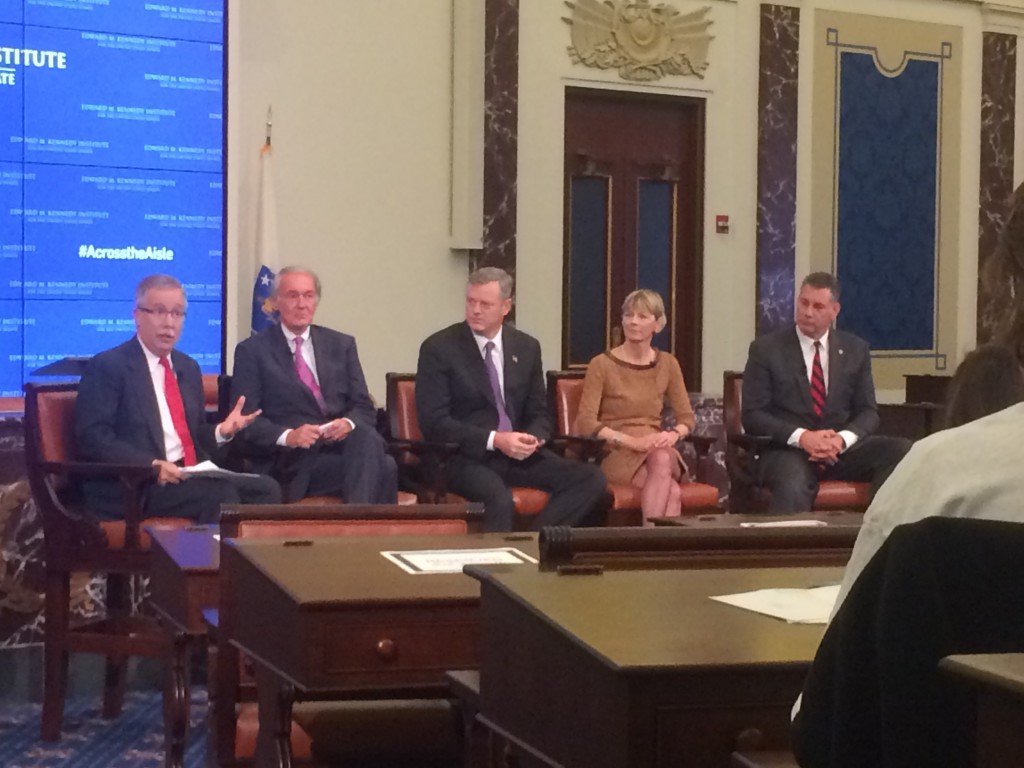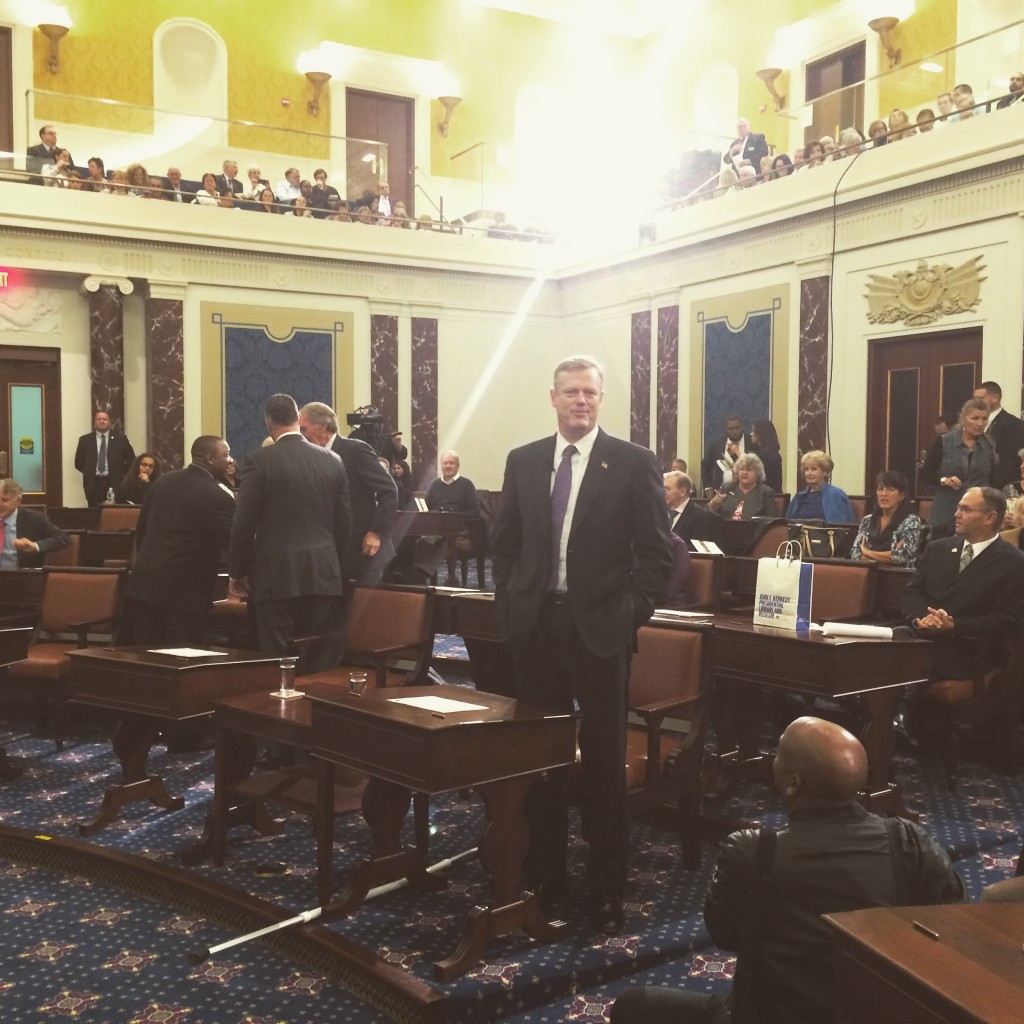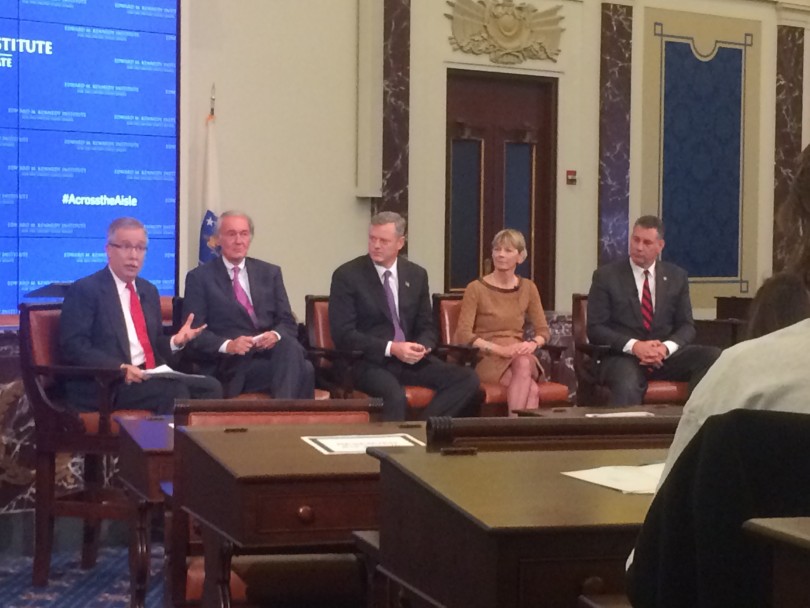By Joe DiFazio
BU News Service
Governor Charlie Baker and Senator Ed Markey outlined their vision for curbing the opioid crisis in Massachusetts Monday night in a panel discussion at the Edward M. Kennedy Institute.
The discussion also featured Middlesex Sheriff Peter Koutoujian and Marylou Sudders, secretary of the executive office of health and human services.

(L to R) Jon Keller, Senator Ed Markey, Governor Charlie Baker, Secretary of the Executive Office of Health and Human Services Marylou Sudders and Middlesex Sheriff Peter Koutoujian speak in a panel discusion on the opioid crisis. (Joe DiFazio/BU News Service)
“You can’t put 20 people in a room any more without finding someone who hasn’t been directly affected by this epidemic,” Baker said. “It cuts across class, geography, name it. It really is everywhere.”
In his opening address, Baker said more people died in overdoses in Massachusetts in 2014 than were killed in motor vehicle accidents. This statistic is true nationally as well, according to a release from the White House this month. The governor called for a big disruption to the opioid crisis.
“(We need to) break the trend and step on it,” said Baker. “It will require big changes.”
Baker proposed a bill earlier this month that would limit opioid prescriptions to only 72-hour supplies, increase education about addiction for physicians and give hospitals the ability to keep patients suspected of addiction for three days, similar to dangerous mental health situations. Baker also promised to increase the amount of beds available for those seeking treatment.
Jon Keller, political analyst for WBZ was the moderator for the event and pushed Markey on the inaction of congress to pass Bill S. 524, the Comprehensive Addiction and Recovery Act.
“(Washington) is just gripped by gridlock,” said Markey. “But if there’s any issue that can break out, I think it’s this issue.”

Governor Charlie Baker stands inside the Edward M. Kennedy institute just before speaking in a panel discussion about the opioid crisis in Massachusetts. (Joe Difazio/BU News Service)
Markey pointed to the Surgeon General’s Office planning a report on substance use and addiction next year as progress. Marcy and Senate Majority Leader Mitch McConnell wrote to the office requesting the report.
But for several of the mothers in the crowd donning T-shirts showing their children lost to overdose, the measures aren’t coming quick enough.
“I think they’re doing a good job, but it needs to be done faster. How many children have to die before something is done? We need beds. We need them now,” said Christine Hedding, who lost her daughter Kerri.
A long-time mental health expert, Sudders also echoed the simile of addiction to mental health episodes in support of the Baker’s most recent opioid proposal.
“If someone tried to commit suicide and we transported them to a hospital to be stitched up and we allowed them to walk up, we would sue that hospital for malpractice,” said Sudders.
Koutoujian applauded Baker’s efforts, despite some of the controversy of keeping patient’s possibly against their will at hospitals.
“Would you rather have your loved ones spending a night involuntarily in a hospital bed or with me in a prison bed or in a coffin? I think it’s an easy choice for everyone,” Koutoujian said.





